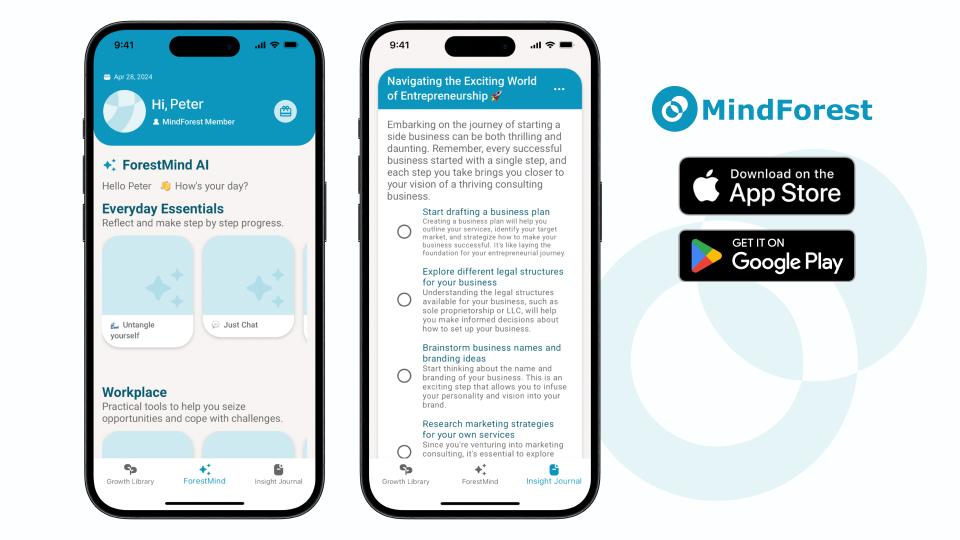
Ghosting and Avoidant Behaviour: Why We Pull Away and 3 Ways to Heal from It
Have you ever experienced ghosting? The two of you were chatting happily the night before, and the next day the person suddenly disappears, never replying again?
This article explores three key strategies for letting go of relationships—whether romantic, platonic, or professional—that no longer align with your well-being. By understanding these concepts, you can create space for healthier connections and personal growth.

Sometimes, we know deep down that it’s time to let go of a relationship, yet emotional attachment keeps us stuck. Just like in a song lyric that says, “Let me go early, so I can start again,” we might have tried our best to maintain a relationship, only to realize that we and the other person are heading in different directions. The hardest part is that while our mind understands leaving is the best choice, our heart resists due to attachment.
This article explores three key strategies for letting go of relationships—whether romantic, platonic, or professional—that no longer align with your well-being. By understanding these concepts, you can create space for healthier connections and personal growth.
Have you ever stayed in a relationship that no longer makes you happy, yet you couldn’t bring yourself to leave? Or remained in a job even though you knew it wasn’t helping you grow? This is often due to status quo bias—our natural tendency to prefer the current state simply because it feels familiar (Samuelson & Zeckhauser, 1988). Even if change could improve our lives, we hesitate because the unknown feels intimidating.
To break free from this bias, ask yourself two important questions:
Many of us have thought, “I’ve already invested so much time in this relationship—shouldn’t I just keep trying?” This is known as the sunk cost fallacy—the mistaken belief that because we’ve spent time, energy, or emotion on something, we must continue, even if it’s draining us (Arkes & Blumer, 1985).
To counteract this, establish clear personal boundaries—not just in saying “no” but in setting a time limit and emotional threshold (Nash, 2018). For example:
Healthy relationships should uplift you, not exhaust you or give you heartbreaks. Establishing boundaries helps you reclaim control, ensuring you invest in connections that genuinely support your well-being.
The hardest part of leaving isn’t always the decision itself—it’s shifting our identity. We often tie our sense of self to our relationships and past experiences, making it difficult to move forward. This is why breakups, career transitions, or changes in social circles feel so daunting.
A powerful way to facilitate this transition is through rituals that symbolize your shift from one phase of life to another. These rituals help your mind process the change and embrace your new identity.
Therapists often recommend post-breakup exercises such as gathering gifts or mementos from a past relationship and either storing them away or discarding them. This is not just about removing objects; it’s a symbolic act that helps the brain acknowledge that a chapter has closed. Just as funerals are not for the deceased but for the living to find closure, symbolic goodbyes give us the clarity to move forward.
If it feels right, consider organizing a small gathering with trusted friends to mark the transition. Sharing your decision with supportive people strengthens your sense of identity and reinforces the change. When those around you recognize and support your new phase—whether it’s being single, starting a new job, or stepping away from a social group—it becomes easier to internalize and move forward.
If discarding everything feels too extreme, you can collect reminders of the past and place them in a box, telling yourself: “This was part of my journey, but I’m choosing to move forward.” This simple act reduces emotional triggers and allows the past to be a meaningful memory rather than something that keeps you stuck.
Through rituals—whether it’s letting go of objects, holding a small farewell event, or simply journaling your thoughts—you create a clear mental boundary between the past and your new beginning.
In relationships, we often struggle to let go due to emotional attachment, habit, or even the sunk cost fallacy. Have you ever stayed in a friendship, romantic relationship, or workplace out of fear of change? MindForest, your AI companion, helps you understand the psychological impact of relationships and provides intelligent guidance so you can make the best choices for your well-being.
Establishing clear personal boundaries is key to determining whether a relationship is worth continuing. MindForest’s AI guidance analyzes your current relationship dynamics and teaches you how to set reasonable time and emotional limits, preventing unnecessary energy drains. With actionable insights, the AI helps you recognize when to give a relationship a chance to improve and when it’s time to walk away for your own well-being.
We often hesitate to leave a relationship simply because we’ve already invested so much in it. This is a classic example of the sunk cost fallacy. However, truly valuable relationships should uplift you, not drain your energy. MindForest’s AI coaching helps you objectively assess your current situation, offering structured reflection exercises that guide you through evaluating the worth of a relationship.
Letting go is not a one-time event but a gradual process that requires time and courage. MindForest offers a guided journaling feature that helps you document key moments in your relationships, process your emotions, and track your personal growth. With ongoing AI feedback, you can gain clarity on your true needs and find your path to happiness and balance.

Download MindForest now and let it be your intelligent guide to freeing yourself from relationships that no longer serve you. Step into a more empowered and fulfilling life today!
When a relationship no longer serves your self-care, holding on only limits your capacity for new and healthier connections. It’s natural to grieve what was familiar, but by recognizing biases, setting boundaries, and using rituals to redefine your identity, you create space for relationships that align with your well-being and growth.
Letting go isn’t about losing—it’s about making room for what’s truly meant for you.
References
Arkes, H. R., & Blumer, C. (1985). The psychology of sunk cost. Organizational Behavior and Human Decision Processes, 35(1), 124–140. https://doi.org/10.1016/0749-5978(85)90049-4
Nash, J. (2018, January 5). How to set healthy boundaries & build positive relationships. Positive Psychology. Retrieved from https://positivepsychology.com/great-self-care-setting-healthy-boundaries/
Samuelson, W., & Zeckhauser, R. J. (1988). Status quo bias in decision making. Journal of Risk and Uncertainty, 1, 7-59.
Discover practical psychology tips you can apply to your everyday life. From building resilience to improving relationships and finding work-life balance, our blog brings expert-backed insights that help you grow.

Have you ever experienced ghosting? The two of you were chatting happily the night before, and the next day the person suddenly disappears, never replying again?

This article breaks down the psychology of nonchalance, signs of a nonchalant dater, the debate nonchalant vs chalant, and what truly matters when forming modern relationships.

Have you ever felt so intensely drawn to someone that you couldn’t stop thinking about them—imagining every possible interaction, decoding every message, overanalysing every glance? If so, you may not be experiencing love, but something more specific: limerence.
Download MindForest and turn these insights into action. Get personalized support from ForestMind AI Coach, track your progress, and unlock your full potential.